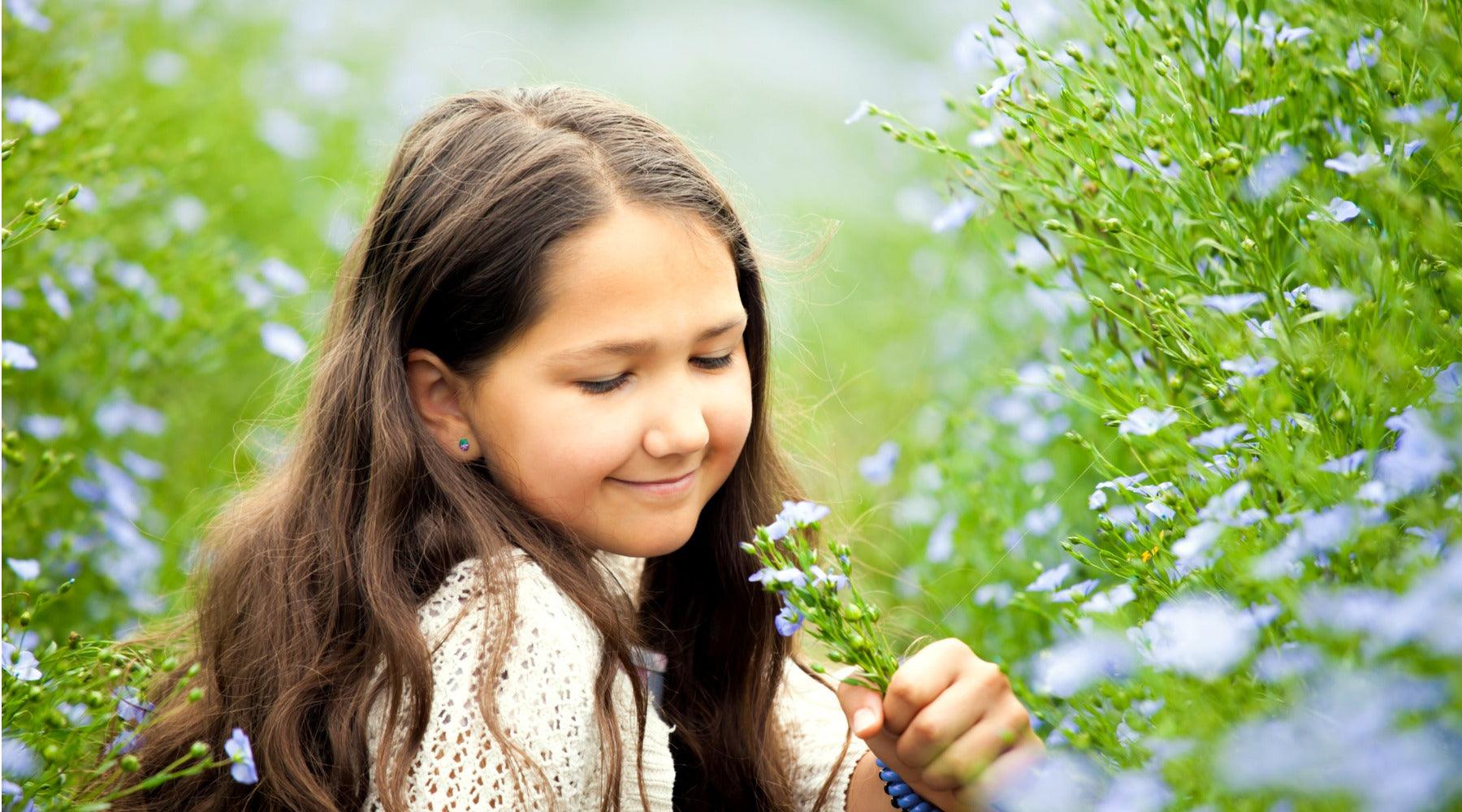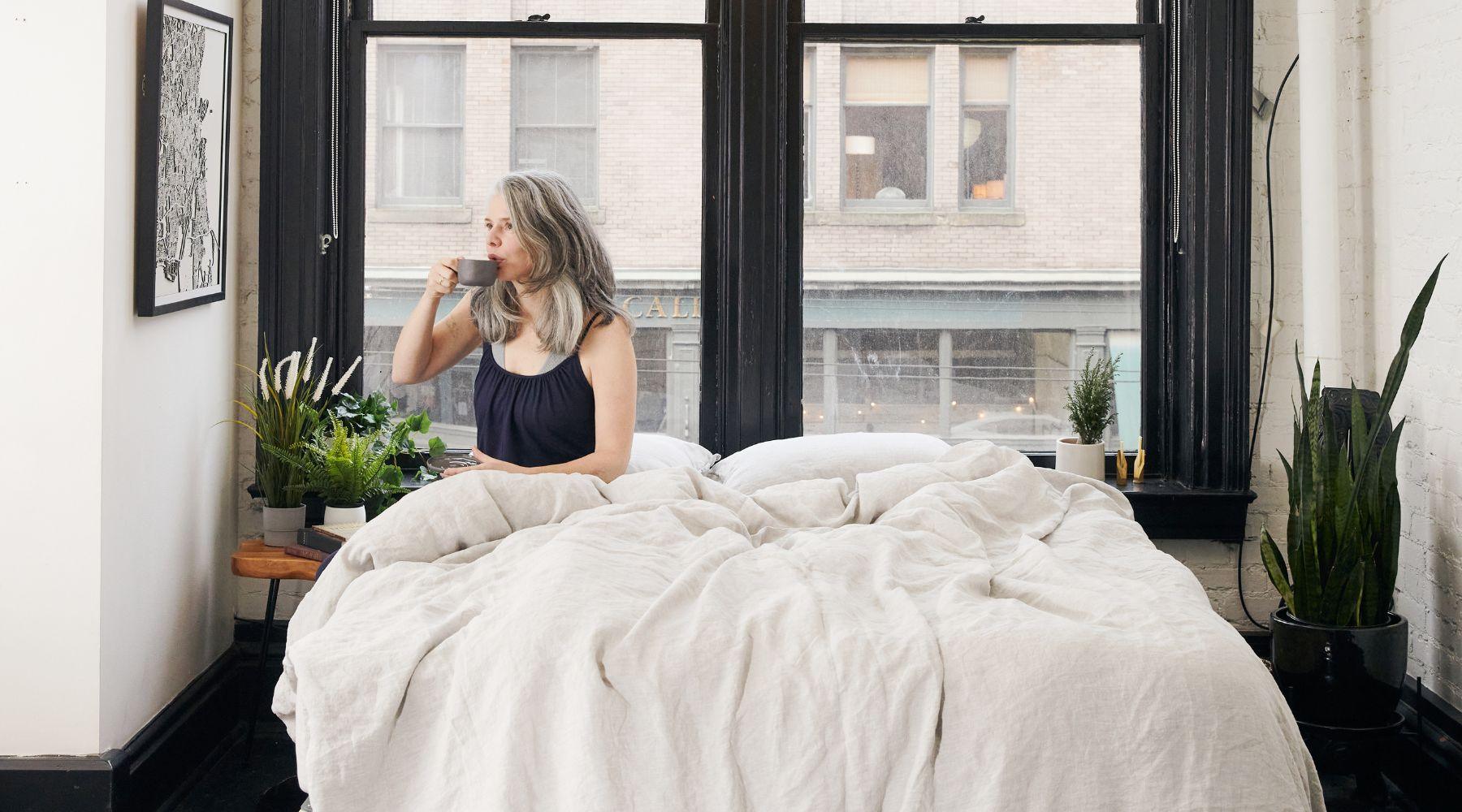
Why Not All Linen is Created Equal
Although linen is a better choice for bedding than cotton, not all linen is the same. Find out what sets The Modern Dane’s organic European linen apart from non-organic linen and linen from other parts of the world.
Chemical Contamination
Linen is made from flax: a tough, woody plant similar to hemp and jute. Modern flax plants have been selectively bred to resist disease and pests—so even if no pesticide is used, very little of the crop is lost.
Even so, some flax farmers will use chemical fertilizers, weedkiller, and pesticides to get the maximum possible yield. These chemicals can contaminate streams—harming birds, fish, and plants. They can also seep into groundwater, which poisons well water in developing countries. “Blue baby syndrome”—a potentially fatal condition where a baby’s skin turns blue from lack of oxygen in the blood—is commonly caused by the contamination of groundwater by nitrate fertilizers. Nitrates can also end up in grains and vegetables growing in the soil.
The Modern Dane’s organic linen bedding uses flax grown with no pesticides, weedkiller, or fertilizer and no defoliants—it’s safe for you, the environment, and for the local communities around flax farms.

Retting: Faster Isn’t Better
Retting is the process by which harvested flax stems, after being pulled from the ground, are laid down in the field. Over time, pectin in the flax stem breaks down, causing the hard outer stalk to separate from the soft, strong linen fiber within.
Farmers of organic European flax use the dew retting process, meaning that no additional water or chemicals are applied to the stems beyond dew, natural rainfall, and soil microorganisms. With high rainfall and warm temperatures, the climate in northwestern Europe is ideal for dew retting—even so, the process can take 2 to 8 weeks depending on conditions.
Other parts of the world are unsuitable for dew retting due to drier or cooler climates. Farmers will therefore use water retting, where the pulled flax plants are submerged in a body of water. This takes less time than dew retting—around 1 to 2 weeks.
Historically, water retting was done in natural water such as bogs, ponds, or lakes—however, this came with unintended consequences. In Ireland, for instance, the once thriving linen trade came to a halt when retting wastewater began to deoxygenate waterways, killing fish and contaminating water supplies. Today, water retting takes place in modern retting tanks—but the wastewater must be treated before it is released back into the ecosystem.
Recently, some farmers have begun to use chemical retting: the flax stem is immersed in a chemical solution—usually an acid or alkali—and separates in just a few hours. While efficient, this process results in a lower quality fiber and polluted wastewater that requires energy-intensive treatment.

At The Modern Dane, we use only organic linen made from certified European Flax grown in France, Belgium, and the Netherlands. The linen is separated using the dew retting process, which is safe for the environment and avoids the use of harsh chemicals.
A Question of Ethics
So far, modern linen producers have avoided any major scandals. But without proper investigation, how can we be sure that the linen we’re buying is ethically made? One of the world’s biggest linen producers is China—recently in the headlines for its treatment of Uighur cotton workers. Another major exporter of linen is India, where low wages and child labor are common.
Fortunately, you don’t need to go digging into a company’s working hours or wages to buy ethical fabric—the Global Organic Textile Standard, or GOTS, does that for you. To earn GOTS certification, the textile manufacturing process must meet stringent social criteria, including:
- Employment is freely chosen—there is no forced labor and workers are free to leave when they wish
- Freedom of association—workers are free to form trade unions, which are supported by their employer
- Child labor is not used
- No discrimination is practiced in hiring, training, promotion, or termination of employment
- Working conditions are safe and hygienic
- No harassment or violence is permitted
- A national living wage is paid
- Working hours do not exceed 48 hours per week
- No precarious employment—no subcontracting or “apprenticeships” without intention to offer employment
- Migrant workers are treated the same as local workers
We’re proud to say that The Modern Dane’s European bedding is GOTS-certified—each set you purchase will support fair working practices in the textile industry.
Do you buy organic? What certifications and labels do you look out for when you shop? Let us know on Instagram, Pinterest, Facebook, or Twitter!






Leave a comment
This site is protected by hCaptcha and the hCaptcha Privacy Policy and Terms of Service apply.